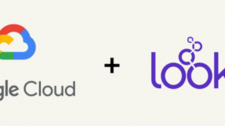Upgrade & Secure Your Future with DevOps, SRE, DevSecOps, MLOps!
We spend hours on Instagram and YouTube and waste money on coffee and fast food, but won’t spend 30 minutes a day learning skills to boost our careers.
Master in DevOps, SRE, DevSecOps & MLOps!
Learn from Guru Rajesh Kumar and double your salary in just one year.
Source:- forbes.com
Even with heavy investments and continued innovation, Google’s cloud business remains a disappointing No. 3 in the market. But the new head of the division, Thomas Kurian, is making a bold step to change things up – that is, shelling out $2.6 billion for Looker. This is actually Google’s third largest acquisition in its history.
“It’s a very smart deal for Google,” said Jake Stein, who is a SVP of Stitch at Talend. “It’s a great indicator and testament to the value of technologies embracing a multi-cloud future.”
The founders of Looker, back in 2011, set out to solve a major problem: As companies were accumulating enormous amounts of data — from business apps, social networks, and IoT — there was a need to find much better ways to gain real-time insights. Many of these companies were hamstrung by sprawling IT systems. The result was often the creation of brittle Frankenstacks, which usually became unworkable.
For Looker, it created a next-generation BI (Business Intelligence) platform. At the heart of this was the linking to data warehouses — say from Amazon.com’s RedShift, Snowflake, Google’s BigQuery or Microsoft’s SQL — without having to dump the information into the vendor’s datastore. Looker also created its own language, called LookML, that meant that there was no need to learn complex SQL statements. Because of these differentiations, the company was able to get lots of traction (there are currently more than 1,700 customers).
The Deal
Keep in mind that there are strong synergies between Looker and Google. Both are cloud-native operators and have roughly 350 customers in common like WPP, Hearst and BuzzFeed. And going forward, there is considerable potential for the evolution of the platform. For example, Google has an impressive set of AI (Artificial Intelligence) and ML (Machine Learning) capabilities that are likely to be integrated.
“The pace and scale at which analytics workloads are moving to the cloud has been unrelenting and the size of Google Cloud’s acquisition of Looker is a prime example of this market shift,” said Adam Wilson, who is the CEO of Trifacta. “The early days of cloud computing were driven by developers building and hosting applications on the cloud but today’s growth opportunities in cloud are focused on analytics, machine learning and AI.”
The Google/Looker deal is also likely to shakeup the industry in a big way. “Google’s acquisition of Looker is validation that the age of pure-play visualization tools is over,” said Ajeet Singh, who is the co-founder and executive chairman of ThoughtSpot. “Businesses need agility to compete in a digital world and the older generation of tools like Tableau and Qlik are holding them back.”
The Risks
But of course, M&A can be dicey. Let’s face it, there are many examples of acquisitions that fall apart – and open up new opportunities for rivals. There is also the risk that Google may be tempted to find ways to lock-in customers, such as by limiting certain features to BigQuery. Oh, and regulatory approval of the acquisition should not be taken for granted either. It appears that the federal government is exploring an antitrust investigation against Google.
And finally, there may even be an opportunity for open source alternatives, which could be disruptive.
“Overall we believe that anyone should be able to make sense of data without having to write complex business queries,” said Danielle Morrill, who is the General Manager of Meltano at GitLab. “With the acquisition of Looker, there is a lot of conversation about the open source data analytics space. As Looker is proprietary, we believe this is the right time to develop an open source alternative that helps users define re-usable business logic to allow everyday people to consume data for business purposes.”
